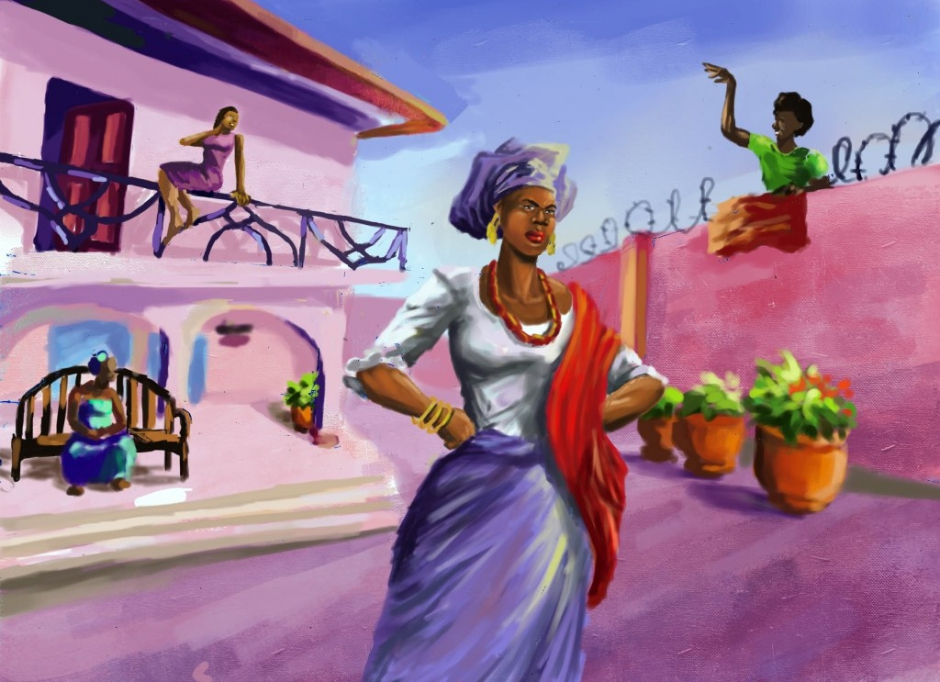• In the dimension of the dead, all of South African history is present at once – and the dead must atone for their crimes
• A white woman takes her black lover to visit her parents, but he’s been bitten by a dead dog and is acting strangely
‘Stations’ (2015) by Nick Mulgrew (South Africa)
‘Shame’ (2014) by Nerine Dorman (South Africa)
Though blessed by climate and geography, South Africa is not a happy place. The legacies of colonialism and apartheid mean that many different groups – Afrikaans speakers, English speakers, Xhosa, KwaZulu, Khoisan, Cape Coloured and immigrants from other African countries – are ill at ease with each other and their history.
In terms of numbers of writers and published novels, South Africa dominates African science fiction and fantasy. It has the best organized fans and the longest history of SF fandom and of SF publication. Its white population seems to have a cultural affinity for science fiction and fantasy. In terms of sheer numbers of people who have written and published SFF it overwhelms any other individual African country, with the possible exception of Nigeria. Though no longer Africa’s biggest economy, it has in many ways the most developed and impressive publishing industry and distribution chains. South African publishing is now backing speculative fiction by black Africans such as Unathi Magubeni and science fiction written in home languages.
But for now, South African fantasy writers are mostly white. There is a strand of Gothic Africanism like Gem Squash Tokoloshe (2005) by Rachel Zadok or ‘Leatherman’ by Diane Awerbuck in Terra Incognita (2015), fiction that embraces an African identity and uses it to work though fears, often drawing on South African folklore.
The first story in this section was published in the Short Story Day Africa anthology Terra Incognita. Nick Mulgrew was in his early 20s when he wrote ‘Stations’ in 2014. Drunk after a late night editing session, he sat down and wrote a story in which the ghosts of the men who created South Africa and apartheid had to stand in place of their statues and confess. The day the anthology was launched was the day that the ♯RhodesMustFall protests began. By the time I interviewed him in 2016, the University of Cape Town was closed, and the story felt like outright prophecy.
Terra Incognita was edited by Nerine Dorman, a key figure on the South African scene, an organizer of the yearly Horrorfest, and an editor/author of note. The short story featured here, ‘Shame’ uses a zombie apocalypse to solidify the issue of race in South Africa, and to communicate the constant threat of violence or being denigrated that so many South Africans feel. Read a detailed interview with Nerine in 100 African Writers.
One of the interesting features of African science fiction and fantasy is how distinct it is in different countries – as work from Kenya, Malawi, Uganda and Nigeria will show in the following sections.

